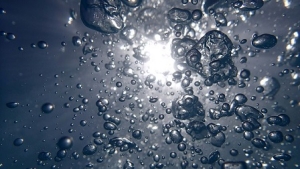 Drinking water is vital to good health, and we humans cannot live without good quality drinking water, but just how good is the quality of our water on a global scale?
Drinking water is vital to good health, and we humans cannot live without good quality drinking water, but just how good is the quality of our water on a global scale?
Water is not only utilised for drinking purposes but also for transport, agriculture, business, energy, and various other uses domestic and otherwise. It is therefore important that we maintain the quality of the water at our disposal at all times.
How is the Global Water Quality?
A global study undertaken by the International Food Policy Research Institute (IFPRI) and Veolia, a specialist in optimised resource management, and released in April 2015 has indicated that our water resources are in trouble.
According to the research:
- Up to 1 in 3 people will be exposed to a high risk of water pollution from increased amounts of nitrogen and phosphorous by 2050; and
- There will be a high risk of water pollution, pollution reflected by increased levels of biochemical oxygen demand (BOD), for up to 1 in 5 people
The study, the first of its kind, projects that the quality of our water is set to rapidly deteriorate over the next few decades, resulting in increased risks to thousands of aquatic ecosystems, economic development and human health, in both developed and developing countries.
The study further projects that around 4.8 billion people or 52%, of the world’s population, approximately 45% of total GDP ($63 trillion), and 49% of global grain production will be at risk due to water stress by 2050 if we do not do something about managing our water resources better.
According to Claudia Ringler, deputy division director of IFPRI’s Environment and Production Technology Division, Globally, more people will be living in areas at a high risk of water pollution in 2050 due to increased loadings of pollutants. Our study examined the effects of increased nitrogen, phosphorous and BOD as human population, agriculture activity and economic development accelerates. We also examined potential impacts through the lens of established climate change models. While these nutrients occur naturally in the environment and, in fact, help sustain aquatic life, too much of a good thing is bad. Already, too many people are exposed to high risks associated with these pollutants.”
Get water coolers from London from Living-Water. Products include bottled water coolers and mains fed water coolers.





